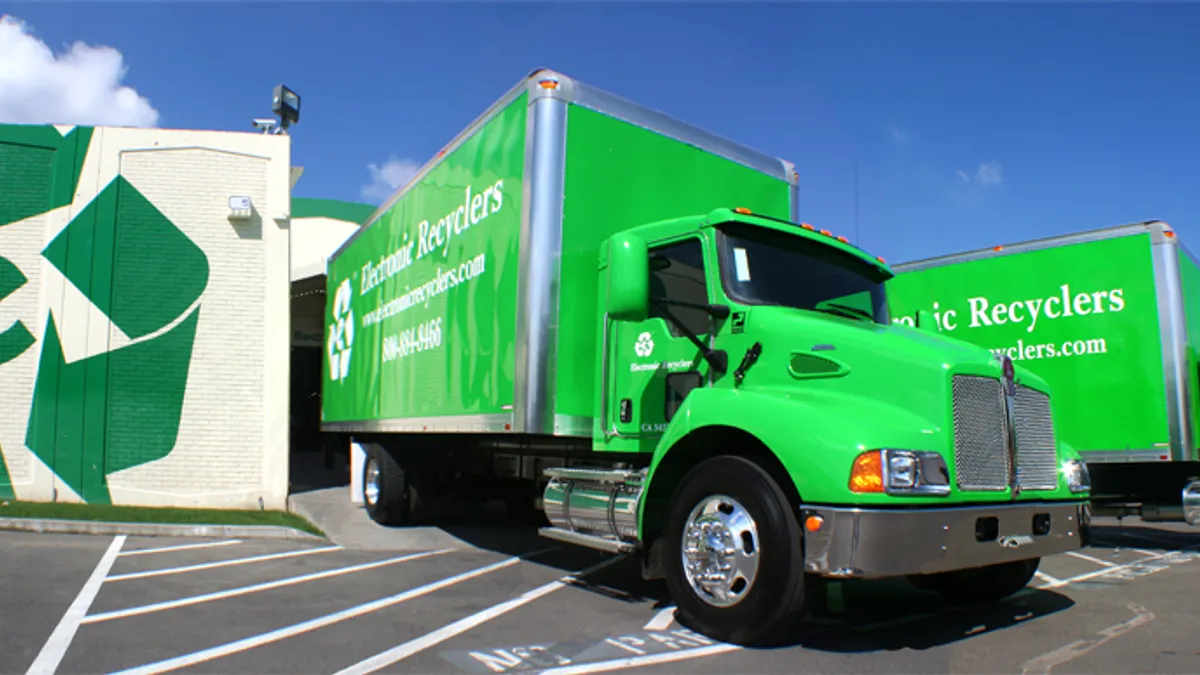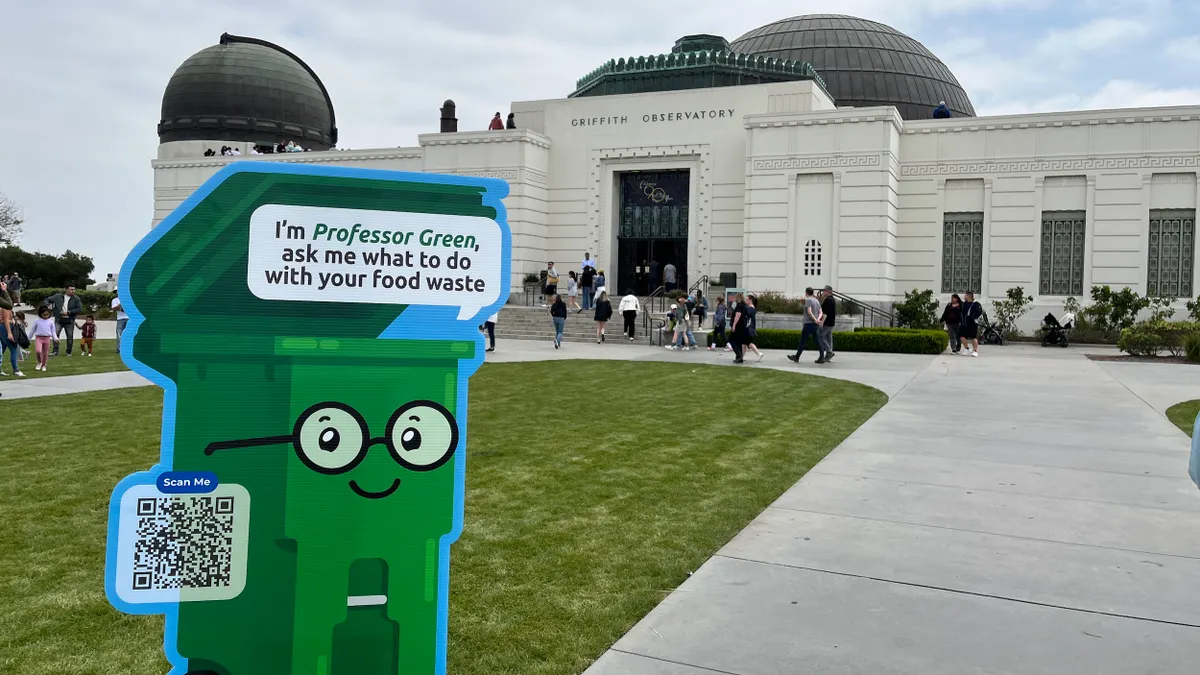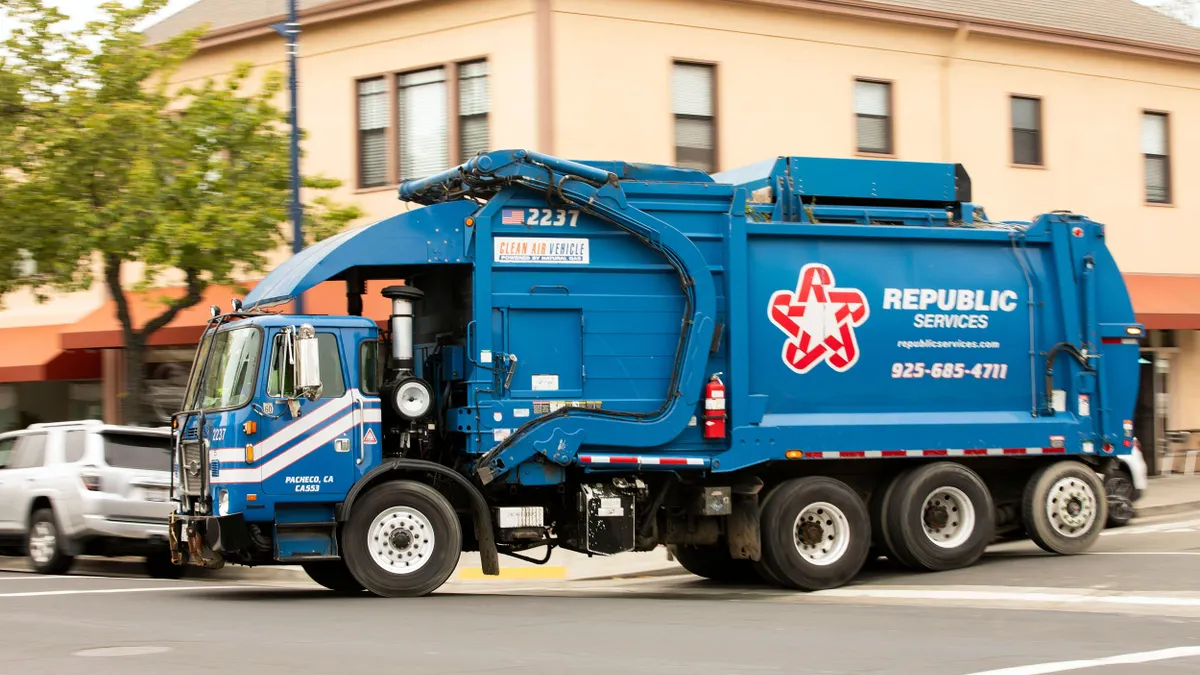UPDATE: May 20, 2019: Zero Waste Solutions has officially opened for business following final equipment installation by CP Group, as reported by the Sippican Week. The company plans to process up to 45 tons of material per hour and employ an estimated 50 people to start. Material will reportedly be sold to domestic markets as well as to Canada, Thailand, Pakistan, India, Vietnam, Indonesia, Turkey and China.
A long-awaited facility set to open in Massachusetts this spring has the potential to offer much-needed additional processing capacity — while also raising new questions about the state's broader waste and recycling infrastructure.
Zero Waste Solutions (ZWS), a new 2,000-ton-per-day "advanced MRF," is scheduled to begin operations in the town of Rochester by April. It has been permitted to handle MSW, C&D material, single-stream recyclables and source-separated material including cardboard, e-waste, paper and white goods.
The $40 million facility will have two sorting lines — one for commingled streams, another for dry commercial and residential streams — and receive a portion of its energy from rooftop solar panels. ZWS CEO Mike Camara is projecting initial recovery rates of 65% or higher.
Some of the equipment that will be used to achieve these rates includes CP Group's recently debuted anti-wrapping Auger Screen, along with the company's MSS FiberMax and PlasticMax optical sorters.
According to Camara, the remaining material not captured in this process will include categories such as waxed cardboard, soiled paper products and low-value plastics. The original plan was to convert this leftover stream into fuel briquettes using technology from a locally-based company, reaching an estimated recovery rate of 90%.
Camara says that while the briquette plan is no longer happening, this rate may still be achievable if a new Enerkem waste-to-fuel facility opens in the future. The Canadian company confirmed to Waste Dive that it's currently looking at Massachusetts as one of multiple possible U.S. locations. Minnesota is another state where project talks continue to move forward.
Zero Waste Solutions, a sister company of ABC Disposal Services and New Bedford Waste Services, has been in the works itself for years. Initially projected to open in 2014, the 94,000-square-foot project was delayed by a fire in 2016 and again by changing market conditions.
Now, equipment installation is underway, and at least 14 municipalities have committed tonnage. Camara described this progress as the "tip of the iceberg," promising that more will be signing on. Aside from the fact that ABC Disposal has a longstanding presence in the region, Camara is optimistic about this new business potential due to what he describes as a growing "disposal crisis" in Massachusetts.
Following the closure of numerous landfills — Casella Waste Systems' Southbridge landfill most recent among them — he believes the remaining disposal capacity to be insufficient. Covanta's SEMASS WTE facility is the closest option and has limited capacity for spot tonnage.
"There is nothing, nothing, nothing on the table to replace that end disposal. That’s a disaster," said Camara. "If we have a waste-to-energy [facility] that’s down for a length of time you will see trash sitting at the curb."
Given the current back-up caused by a WTE plant's multi-month shutdown in Connecticut, the situation isn't inconceivable. Disposal capacity has been shrinking in the Northeast for years, leading to higher export volumes up north to New Hampshire or to to western states such as New York, Pennsylvania and Ohio.
While local environmental groups believe this could all be solved with more reduction, recycling and organics diversion, Camara disagrees. Instead, he says the Massachusetts Department of Environmental Protection (MassDEP) has "seriously failed this state" when it comes to long-term disposal infrastructure planning. The potential for an influx of debris following a natural disaster was cited as a particular concern.
Asked to comment, MassDEP's Public Affairs Director Edmund Coletta wrote via email that the agency is "well aware of the tight and decreasing disposal capacity," and will be addressing it in a forthcoming 2030 Solid Waste Master Plan. In the meantime, the release of a new infrastructure study on this topic is imminent.
Beyond pointing to increased development of organics processing facilities, a recent round of recycling grants, "extensive infrastructure" for storm-related debris and a focus on source reduction, Coletta also noted the agency's position on new disposal facilities.
While a previous moratorium on combustion facilities was lifted in 2013 to allow for "innovative waste-to-energy technologies" of up to 350,000 tons per year, agency staff "have not received a single permit application." New landfill projects haven't been successful, either. Waste Management is currently pursuing a landfill expansion, but, since the proposal includes state forest land, will require legislative approval before it can apply for any permits.
"The solid waste industry has been responding by developing increased rail transfer capacity, which reflects that this is the best option from a waste markets perspective. MassDEP believes that we can do much more to influence other management capacity options for waste materials — options that also have greater economic and environmental benefits than disposal facilities," wrote Coletta, pointing to eight anaerobic digestion facilities throughout the state as a prime example.
Camara has said he backs food waste diversion efforts and would like to see the state's commercial organics mandate expanded to more generators. He does not prefer the growing move toward exporting of any kind, which he feels merely shifts the issue elsewhere and can also be expensive due to rising logistics costs.
“If we’re trying to be environmentally conscious, we’re not," he said of the trend.
While multiple instances of the broad "advanced MRF" category are currently operational around the country, with another expected to resume operations in Alabama soon, the concept is less common in the Northeast. Once it's fully operational, many in the region will likely be watching to see whether Zero Waste Solutions can achieve its projected recovery rates and find reliable end markets for this mixed material.



















